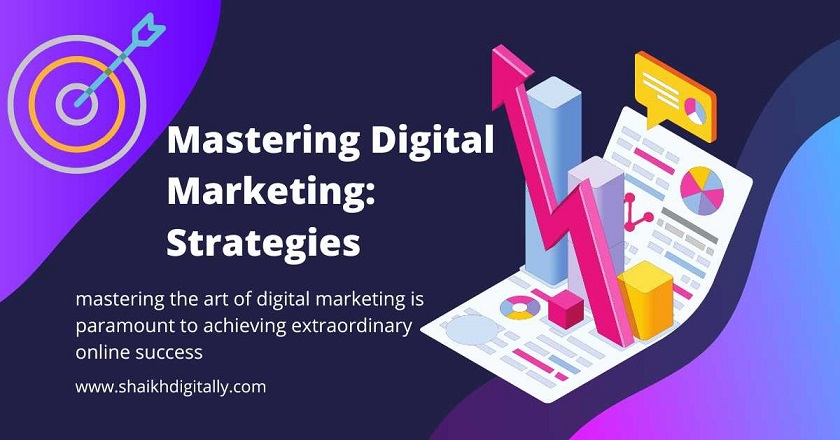In the rapidly evolving landscape of the digital age, businesses are increasingly recognizing the importance of implementing effective digital marketing strategies to stay competitive and connect with their target audience. As consumer behavior continues to shift towards online platforms, understanding and leveraging digital marketing tools and techniques have become imperative for any business looking to thrive in the modern marketplace.
I. Understanding Digital Marketing:
Digital marketing encompasses a wide range of online channels and tactics aimed at promoting products or services. These channels include social media, search engines, email, content marketing, and more. A successful digital marketing strategy involves a holistic approach that integrates various elements to create a seamless and engaging customer experience.
II. Social Media Marketing:
Social media platforms have become powerful tools for businesses to reach and engage with their target audience. Creating a strong presence on platforms such as Facebook, Instagram, Twitter, and LinkedIn is crucial. Businesses should identify the platforms most relevant to their audience and tailor their content accordingly. Regular and consistent engagement, along with the use of visually appealing content, can help build brand awareness and foster a community around the brand.
III. Search Engine Optimization (SEO):
SEO is a fundamental component of any digital marketing strategy. Optimizing a website’s content, structure, and performance can improve its visibility on search engines like Google. Keyword research, on-page optimization, and link-building are key elements of a successful SEO strategy. By ranking higher in search engine results, businesses can attract more organic traffic and enhance their online presence.
IV. Content Marketing:
Content is king in the digital marketing realm. Creating valuable and relevant content helps businesses establish authority in their industry and attract a loyal audience. Blog posts, articles, videos, infographics, and podcasts are just a few examples of content that can be utilized. Content marketing not only provides information to the audience but also contributes to SEO efforts and can be shared across various online platforms.
V. Email Marketing:
Email marketing remains a potent tool for nurturing leads and maintaining customer relationships. Personalized and targeted email campaigns can drive engagement and conversions. Automation tools allow businesses to streamline their email marketing efforts, sending the right message to the right audience at the right time. Building a segmented email list and crafting compelling content are key factors for successful email marketing campaigns.
VI. Pay-Per-Click (PPC) Advertising:
PPC advertising involves placing ads on search engines or social media platforms and paying a fee each time the ad is clicked. This model allows businesses to reach a specific audience based on demographics, interests, and online behavior. Crafting compelling ad copy, selecting relevant keywords, and optimizing landing pages are crucial for a successful PPC campaign. Regular monitoring and adjustment of campaigns based on performance data are also essential.
VII. Influencer Marketing:
Collaborating with influencers in the industry can amplify a brand’s reach and credibility. Influencers have built a loyal following, and their recommendations can significantly impact their audience’s purchasing decisions. Identifying influencers whose values align with the brand and establishing authentic partnerships can lead to successful influencer marketing campaigns.
VIII. Analytics and Data-driven Decision Making:
One of the advantages of digital marketing is the ability to track and analyze various metrics. Utilizing analytics tools provides insights into user behavior, campaign performance, and ROI. Businesses can use this data to refine their strategies, identify areas for improvement, and allocate resources effectively.
Conclusion:
In the fast-paced world of digital marketing, staying ahead requires a comprehensive and adaptable approach. By combining social media marketing, SEO, content marketing, email marketing, PPC advertising, influencer collaborations, and data-driven decision-making, businesses can create a robust digital marketing strategy that not only reaches their target audience but also builds lasting relationships and drives sustainable growth. As technology continues to evolve, staying informed about emerging trends and technologies will be crucial for businesses aiming to maintain a competitive edge in the digital landscape.
